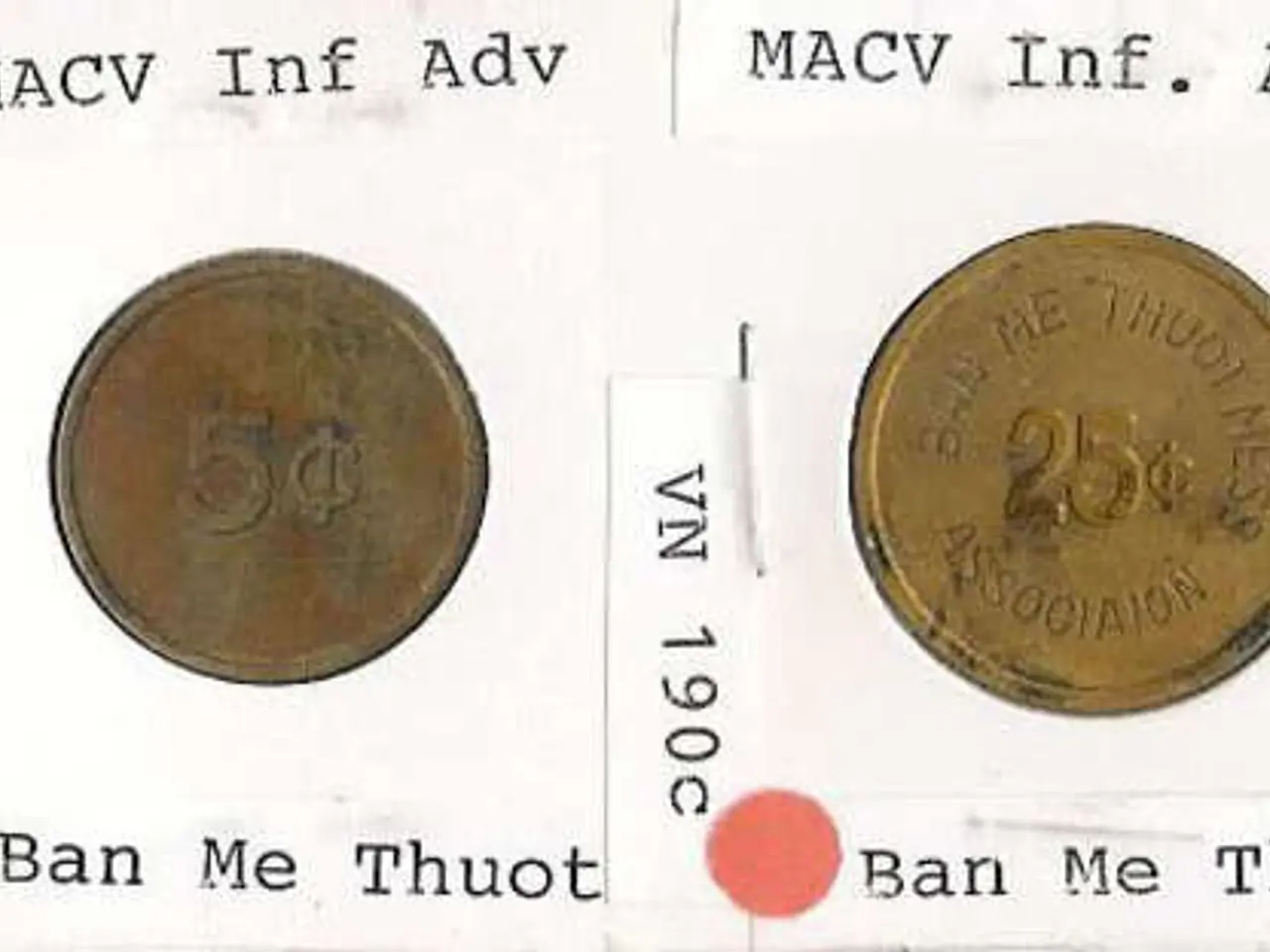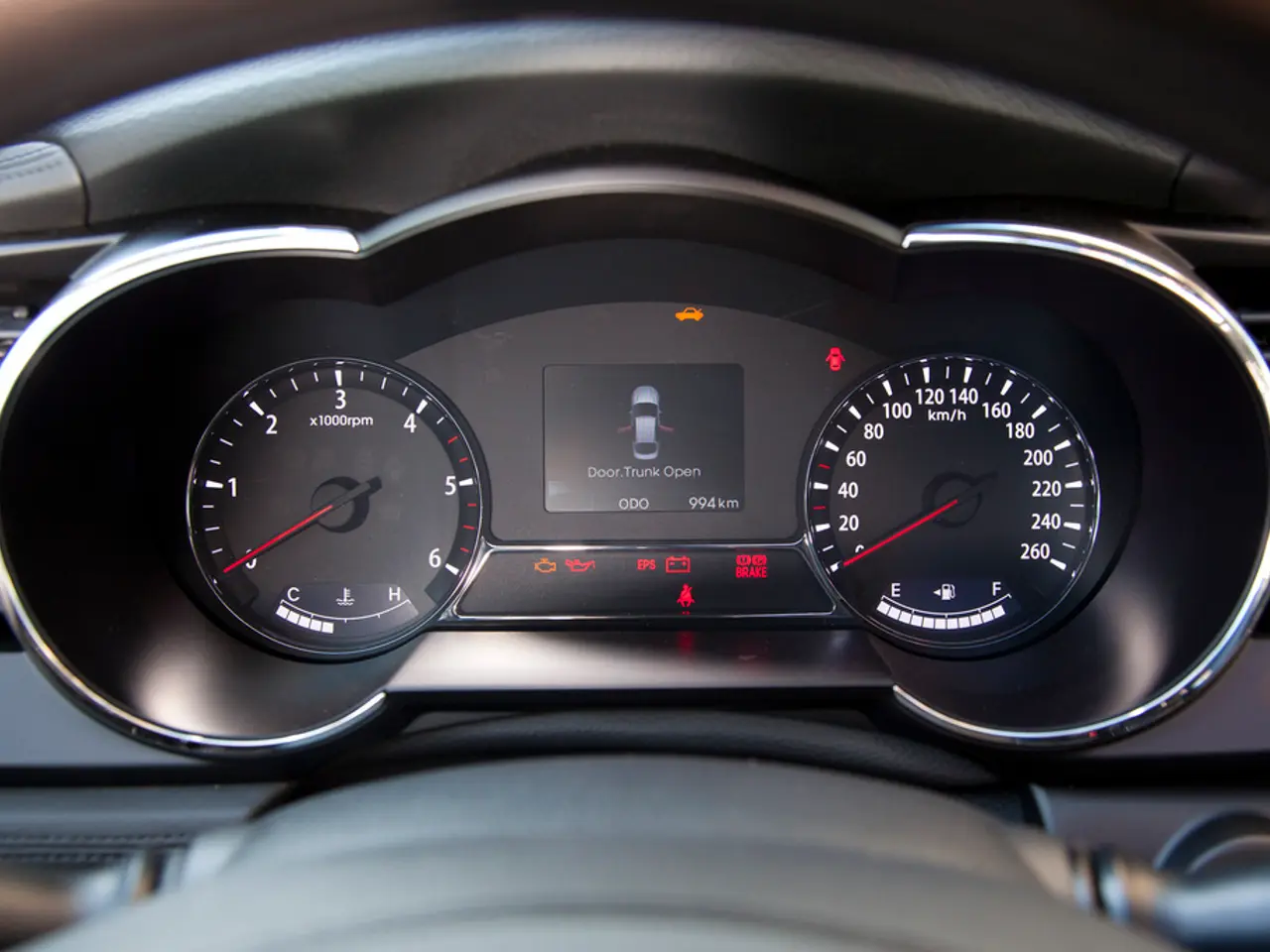Grocers on a Roll: Aldi, Lidl, and the Fight for Germany's Wallet
Competing retailers jockeying for top market dominance in the discount store sector - Competing discounts vying for dominant market position
Who said discount shopping is outdated? DISCOUNTER giants Aldi and Lidl are giving traditional supermarkets a run for their money in Germany—and the numbers don't lie. According to the market research institute YouGov, discounters raked in a whopping 77 billion euros in the country in 2024, a whopping 30% increase from 2019. And they're not the only ones. Penny, Netto, and Norma also saw impressive growth. The food retail sector itself boasted a 26.6% increase in turnover between 2019 and 2024, hitting 203 billion euros. Even the ever-reliable Edeka and Rewe had a similar growth spurt during that timeframe.
The backdrop? The pandemic and Russia's invasion of Ukraine. Despite these tumultuous events, it seems that everyone's reaching for their wallets in the grocery aisle. In 2024, discounters snagged approximately 38% of the market, while full-assortment stores held a close-knit 29%. Specialist retailers, though, experienced a slide.
The scene is bustling with competition, as you'd expect. At the onset of the pandemic, full-assortment stores and consumer stores took the lead. This shift was due to factors like restaurant closures and travel restrictions, which freed up extra income for many folks. However, in 2022 and 2023, things started leaning towards discounters as food price inflation kicked off.
That trend seems to have settled, with neither discounters nor full-assortment stores snatching market share quite as aggressively as before. Robert Kecskes, a YouGov expert, puts it this way: "This intensifies competition not just between distribution channels, but among discounters as well."
And talk about some serious competition! Lidl and Aldi, Germany's two largest discounters, have been locked in a fierce price war. Lidl announced its most significant price reduction yet, slashing more than 500 items across almost all product categories by up to 35% in various regions. Aldi wasn't about to let that slide, countering with plans to slash prices on around 1,000 items, with hundreds more to come. Customers can expect lower prices for items ranging from dairy products and meat to frozen food, sweets, and cleaning supplies.
Aldi's not just playing catch-up; it's got something to prove. Being the cheapest option in customers' eyes—that's what they call price leadership—is fundamental to their ethos, not a flash-in-the-pan strategy. Other retailers are jumping on the wagon, too.
According to Lace, the price spiral is about more than just prices: "Lidl is aiming to gain market share and take the price leadership from Aldi." Being the cheapest isn't just about setting prices; it's about being perceived as such by customers. And who's got a shot at that crown? YouGov's Kecskes thinks Lidl might just steal it from Aldi North and South. He notes that "the price wars in discount retailing are a strategic competition for price-sensitive consumers." The price cuts aren't across the board, but they're part of a strategy: low prices on some items are meant to hook new customers who then buy higher-margin items.
- Aldi
- Lidl
- Germany's Discount Retailers
- Competition
- Market Leadership
- Price Wars
- Groceries
- Robert Kecskes
- YouGov
- Grocerant Battlefield
- Netto
- Norma
- EDEKA
- Rewe
- Coronavirus
- Ukraine
- Kaufland
- Marktkauf
Enrichment Data:Since 2019, the competition between Aldi, Lidl, and other discount retailers in Germany's grocery market has heated up significantly, with a focus on securing market share and engaging in price wars. Here are some key highlights:
Market Dynamics Shift
Market Dominance
- Aldi and Lidl Standouts: Aldi and Lidl have historically led the pack among discount retailers in Germany, but Penny and Netto are making headway.
- Store Expansion: Both chains have continued to expand their store networks, both in their home country and globally.
Price Wars
- Pricing Pressure: Aldi and Lidl have been locked in a competitive race to the bottom on pricing. They often achieve this through aggressive promotions and optimizing their store operations to reduce costs.
- Quality and Variety: Beyond price, there's been a push to improve quality and selection. Both chains have expanded their organic offerings and introduced more premium products to cater to a diverse customer base.
Technological Advancements
- Digital Embrace: There's a push towards digitalization, as both Aldi and Lidl explore online shopping options and bolster their digital presence. However, the emphasis remains on the brick-and-mortar model.
Sustainability and Convenience
- Eco-Friendly Advancements: Customers are placing greater emphasis on sustainability and convenience. Both chains are responding by reducing packaging waste, improving store layouts, and creating user-friendly shopping experiences.
Impact on Traditional Retailers
The intense competition from Aldi and Lidl has forced traditional retailers like Edeka and Rewe to adapt. They've launched loyalty programs, enhanced their store design, and focused on services that discounters can't easily replicate.
Conclusion
The competition amongst Aldi, Lidl, and other discount retailers in Germany has resulted in a highly competitive market. Aldi and Lidl remain market leaders, but their rivals are adapting to the evolving landscape by diversifying their offerings and improving the customer experience.
- In the heat of Germany's competitive grocery market, Aldi and Lidl, along with other discount retailers, have been engaging in price wars since 2019, vying for market dominance.
- Robert Kecskes, a YouGov expert, states that the competition within discount retailing is not just between distribution channels, but also among individual retailers such as Aldi and Lidl, who are fighting for price leadership.
- This price leadership battle is not only about setting prices; it's also about being perceived as the cheapest option by consumers, aiming to attract and retain cost-conscious shoppers.




